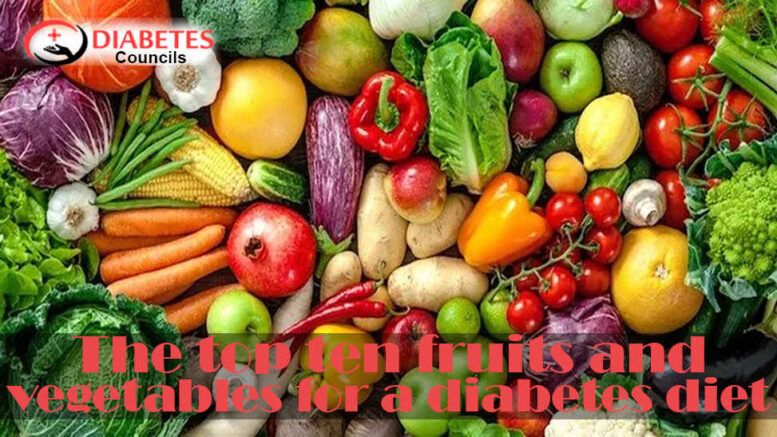These ten fruits and vegetables are perfect for diabetics since they help control blood sugar levels and offer a host of other health advantages.
FRUITS
1. Berries:
Berries like blueberries and other berries are an excellent addition to your diabetic diet because they are rich in antioxidants, which help prevent cell damage in the body. Particularly blueberries have been demonstrated to strengthen the immune system and aid in the reduction of harmful cholesterol.
According to a recent large-scale study, women who ate a lot of foods high in antioxidants, including berries, had a 27% lower chance of developing diabetes. Berries are a terrific alternative to typical sweets for satisfying your sweet tooth because they are low in sugar and high in nutrients.
2. Citrus fruits:
Everyone knows that citrus fruits are abundant in vitamin C, but if the fruit is really sweet (like oranges), you may be concerned about its high sugar level. Thankfully, the fiber in these fruits slows the absorption of sugar into the bloodstream, aiding in blood sugar regulation and promoting fullness.
Before including citrus fruits in your diet, it’s crucial to discuss with your pharmacist about any potential medication interactions. One example of this is grapefruit.
3. Apples:
This fall staple is high in vitamin C and fiber, especially if you leave the peel on. Additionally, anthocyanins—a class of compounds found in apples—have been demonstrated to increase insulin and may offer protection against obesity and diabetes.
Try to choose a smaller apple (around the size of a tennis ball), and don’t forget to include the carbohydrates in your meal plan, as apples still contain carbohydrates like other fruits do.
4. Cherries:
These delicious little fruits also have anthocyanins, which aid in blood sugar regulation. They also have a wealth of other minerals, such as calcium, iron, and fiber, as well as vitamins A, C, and B. In addition to being a delicious snack, cherries can be used to boost the flavor and nutritional value of salads, muffin, and pancake preparations.
VEGETABLES
5. Leafy greens:
Another strategy to help control your diabetes is to eat more leafy greens, such as spinach, kale, and collard greens. Rich in minerals and omega-3 fatty acids, they support improved insulin secretion and blood sugar regulation.
Consuming slightly more than a cup of these veggies daily lowered the risk of diabetes by 14%, according to a research. These leafy greens also control hormone production, which wards off heart attacks and strokes. They also have a very low calorie and carbohydrate content!
Read Also: How to reduce your chance of getting diabetes
6. Sweet potato:
Sweet potatoes are another fantastic vegetable to help you maintain healthy blood sugar levels because they are high in vitamins and fiber. Because of their low glycemic index (GI), they won’t cause as big of a blood sugar increase as conventional potatoes.
7. Broccoli:
Broccoli is a low-calorie vegetable that also contains a lot of vitamin A and C, as well as antioxidants. Additionally high in fiber, this green vegetable will help you feel fuller for longer.
8. Asparagus:
This vegetable, which has a low GI index and is packed with vitamins, minerals, and fiber, is another excellent addition to any diabetic meal plan. Asparagus actually supplies 18% of your daily vitamin C and E needs in just one meal. Additionally, it has a respectable quantity of protein (4-5 grams per cup), which helps to maintain blood sugar stability and fullness.
9. Red onion:
Red onions are low-GI, low-calorie foods that won’t mess with your blood sugar levels in addition to their antioxidant qualities. It is a good source of chromium, which is necessary for blood sugar regulation, and it has considerable amounts of vitamins C and B6.
10. Zucchini:
Due to its moderate flavor and versatility, this vegetable is a fantastic choice for those with diabetes because it contains magnesium, zinc, and vitamin B, all of which are essential for balancing blood sugar levels. Additionally, lutein and zeaxanthin, two phytonutrients that support eye health, are found in zucchini.
Remember that the majority of these fruits and vegetables include sugar, which may impact your carb count despite all of their health advantages.


Be the first to comment on "The top ten fruits and vegetables for a diabetes diet"